Exploring Vegan Collagen: Top Plant-Based Sources for Natural Collagen
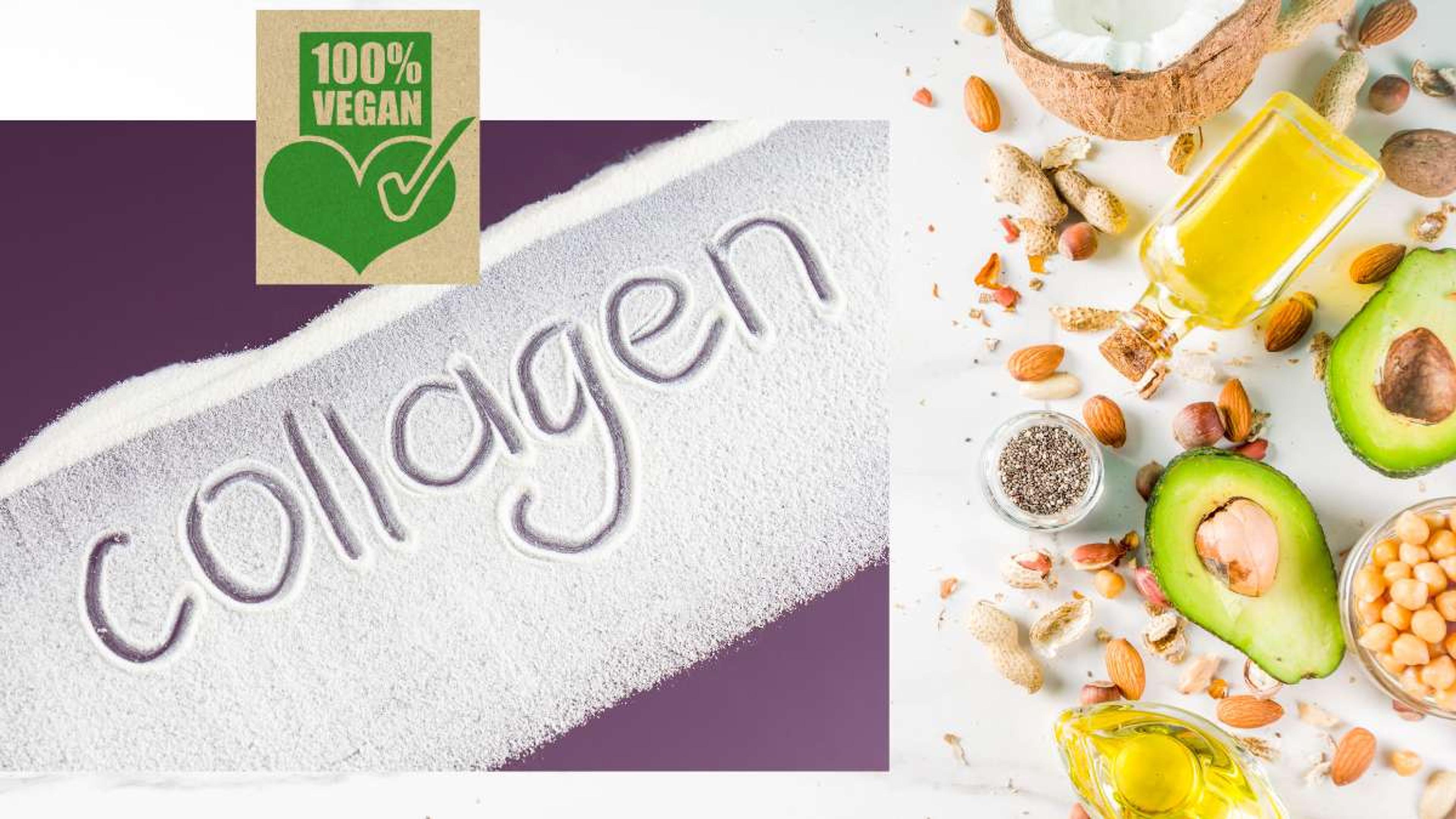
- Key Takeaways
- What is Vegan Collagen and How Can it Be Obtained?
- Vegan Collagen Sources
- Incorporating Vegan Collagen into Your Diet
- Benefits of Vegan Collagen
- Vegan Collagen Myths and Misconceptions
- Conclusion
- FAQs
Are you a vegan finding it tough to maintain adequate collagen levels? You are not alone, as most traditional sources of collagen come from meat and fish. This comprehensive guide will shed light on how to boost your collagen levels using plant-based sources while sticking to your dietary choices.
Don't miss out, keep reading!
Key Takeaways
- Vegan collagen can be obtained through specific amino acids, aloe vera, silica, vitamin C, and vitamin E found in various plant-based foods and supplements.
- Plant sources rich in amino acids like legumes, quinoa, and hemp can help boost collagen synthesis on a vegan diet.
- Aloe vera is a powerful plant-based source of vegan collagen that promotes healthy skin, hair, nails, and collagen growth when ingested.
- Silica-rich foods like oats, avocados, asparagus and strawberries can support collagen production on a vegan diet.
- Vitamin C-rich foods like citrus fruits and bell peppers are essential for collagen production in the body.
- Vegan collagen powders made from plant-based ingredients provide an alternative to animal-derived collagen supplements and can be easily incorporated into smoothies or recipes.
- It's important to consult with a healthcare professional before adding any supplements to your diet to ensure they are safe and suitable for you.
What is Vegan Collagen and How Can it Be Obtained?
Collagen is a protein that plays a crucial role in maintaining the health and structure of our skin, hair, nails, and joints. It is important to maintain healthy levels of collagen in your body to avoid consequences of collagen deficiency leading to premature aging, inflammation of cartilage causing arthritis, weakened bones, and joint pain.
Traditionally, collagen has been sourced from animal products such as meat and fish. However, for those following a vegan lifestyle, finding plant-based sources of collagen can be a challenge.
Fortunately, there are several ways to obtain vegan collagen. Vegan collagen, as the name suggests, refers to collagen that is derived from plant-based sources rather than animal sources. While traditional sources of collagen, such as meat and fish, may not align with a vegan lifestyle, there are several plant-based alternatives that can help boost your collagen levels.
One way to obtain vegan collagen is through specific amino acids found in various plant-based foods. Legumes, quinoa, and hemp are excellent sources of these amino acids and can aid in collagen synthesis on a vegan diet. Incorporating these foods into your meals can provide a boost to your natural collagen production.
Explaining the concept of vegan collagen
Vegan collagen is an exciting concept making waves in the world of health and nutrition. It's a type of collagen derived from non-animal sources, aimed at individuals who avoid animal products for dietary or ethical reasons.
Traditionally, collagen has been sourced from animals due to its abundant presence in connective tissues like bone and skin. However, modern advancements have evolved ways to produce vegan-friendly, plant-based collagen alternatives through genetically modified yeast and bacteria - a fantastic stride for plant-based wellness.
This complex process synthesizes vital proteins similar to human collagen structures while respecting vegan dietary practices. As research advances, further understanding will cement the role of vegan collagen in maintaining healthy skin elasticity, supporting joints, enhancing hair growth and much more without the need for animal-derived nutrients.
Traditional Collagen Sources and Limitations
Traditional collagen sources primarily include animal-based foods, with bone broth, certain organ meats, and meat on the bone being the most prominent examples. Collagen supplements often derive their collagen protein from cows or fish, making them unsuitable for vegans.
While effective in promoting healthy skin and joints, these animal-derived options pose a significant limitation for vegetarians and those following a vegan diet. Additionally, environmental considerations surrounding the use of animal products on have raised concerns over these traditional sources of collagen.
This includes ethical issues relating to animal farming practices as well as environmental pollution linked to livestock production - further catalyzing demand for plant-based alternatives like vegan collagen.
Vegan Collagen Sources
Vegan collagen sources include amino acids, aloe vera, silica, vitamin C, and vitamin E.
Amino acids

Amino acids serve as critical building blocks for collagen production. Collagen protein comprises 19 unique amino acids, including essential ones like glycine, proline, hydroxyproline, and arginine.
These combinations are not found naturally in plants but can be acquired through a balanced diet filled with a variety of plant-based proteins such as legumes, quinoa or hemp. Certain vegan collagen supplements also provide these necessary amino acids for those finding it challenging to meet the requirement through food alone.
Therefore, ensuring adequate intake of these specific amino acids can help boost collagen synthesis on a vegan diet effectively.
Aloe Vera
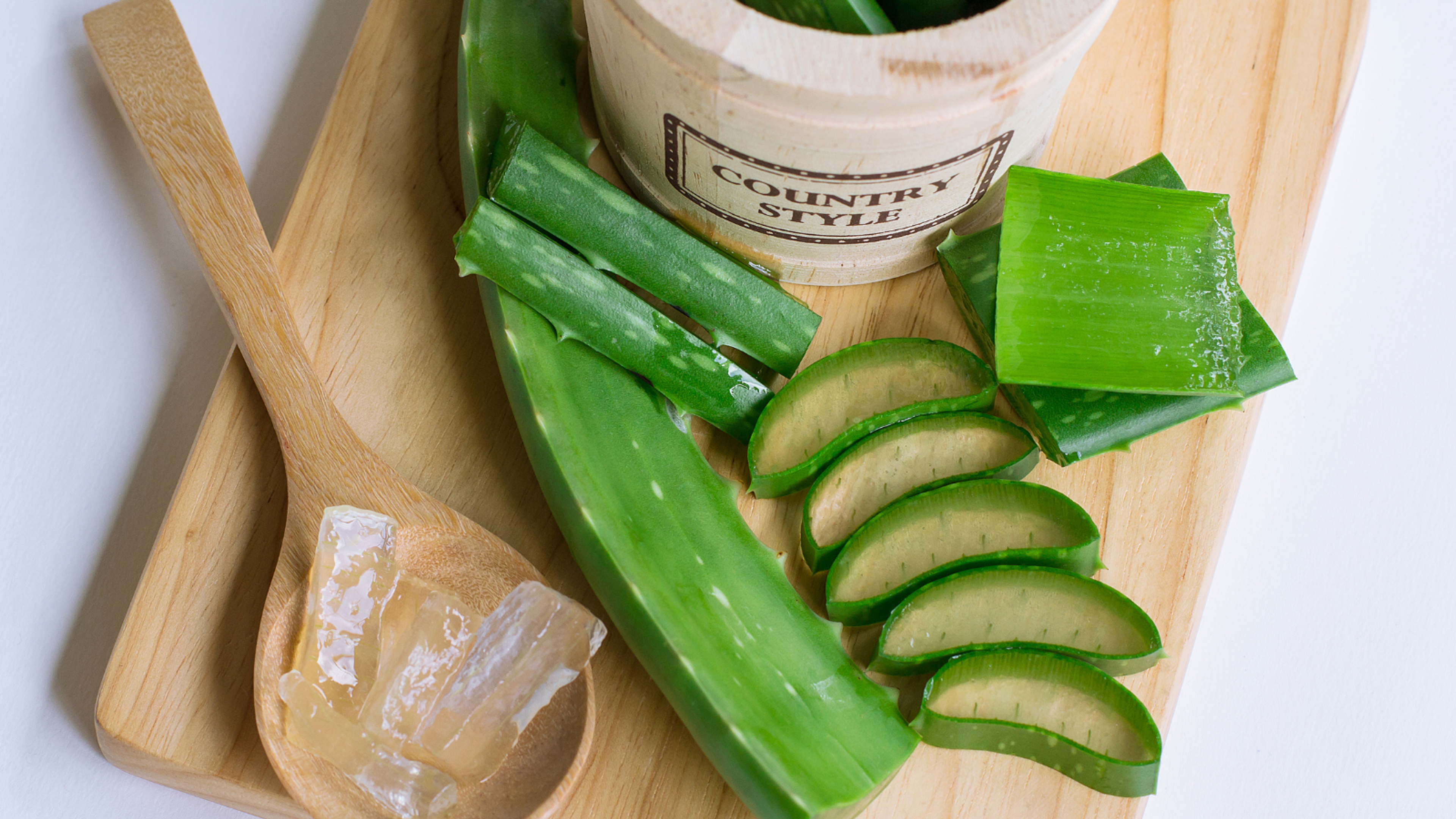
Aloe vera is a powerful plant-based source of vegan collagen that can be easily incorporated into your diet. It contains essential ingredients such as vitamin C, vitamin E, amino acids, and silica, all of which provide the building blocks necessary for collagen production in the body.
Aloe vera promotes healthy ligaments, skin, hair, nails, and collagen growth when ingested. It plays an active role in collagen synthesis by promoting the building of longer and stronger collagen strands in the human body.
In addition to its collagen-boosting benefits, aloe vera also increases the bioavailability of vitamins and minerals necessary for collagen production. You can consume aloe vera in the form of supplements or incorporate it into smoothies for maximum benefit.
Silica
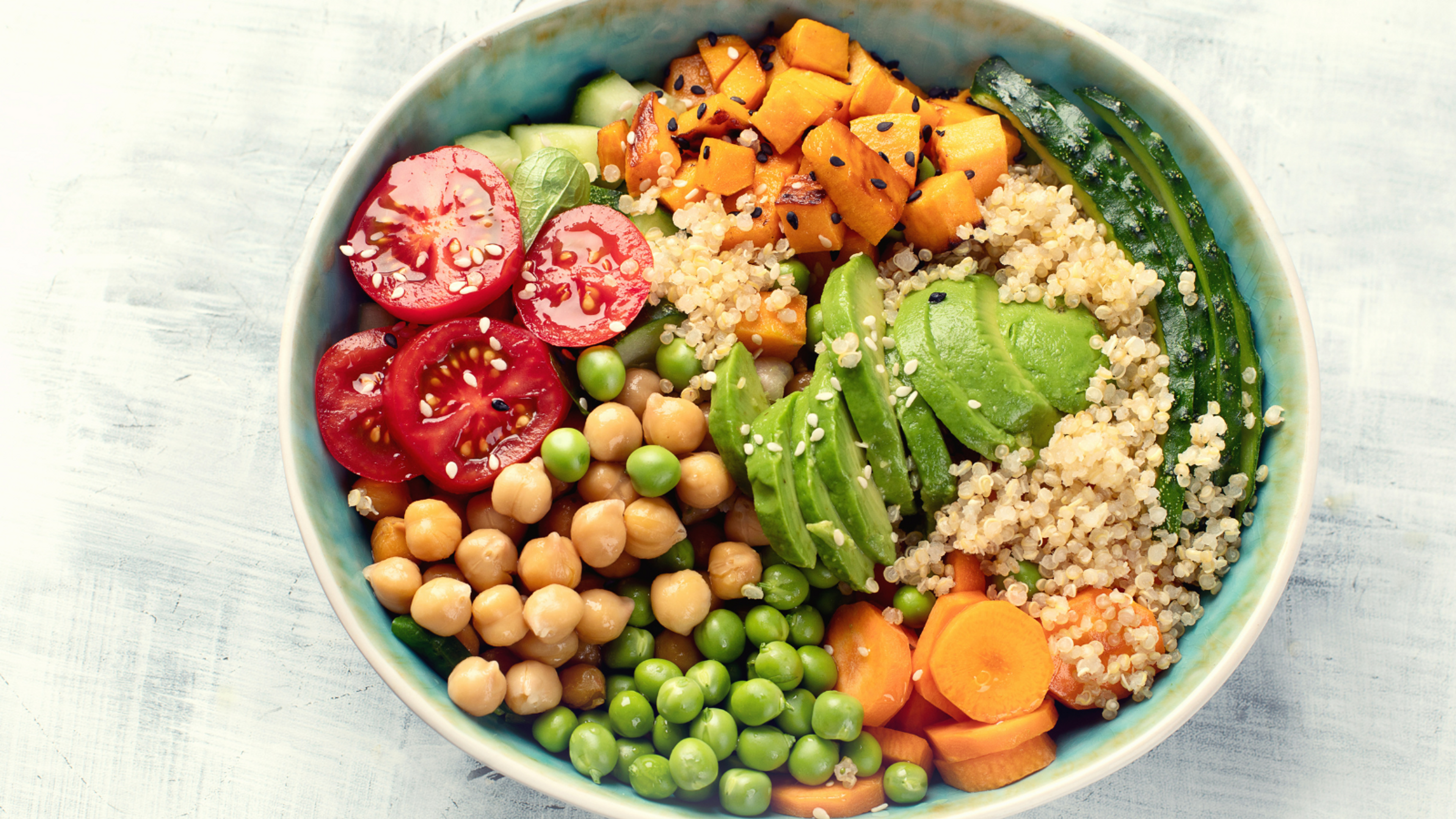
Silica, also known as silicon, is a key compound that plays a crucial role in boosting collagen production on a vegan diet. It is an essential mineral that helps promote the synthesis of collagen in the body.
Silica can be found naturally in various plant-based foods, making it a suitable and vegan-friendly source for enhancing collagen levels. Plant sources rich in silica include oats, barley, avocados, cucumbers, asparagus, horsetail, nettle, and strawberries.
Additionally, vegetal silica supplements like FloraSil can be taken to further support collagen synthesis in the body. By incorporating these silica-rich foods into your diet or considering silica supplements if needed, you can aid in maintaining healthy collagen levels and enjoy their associated benefits such as improved skin elasticity and joint health.
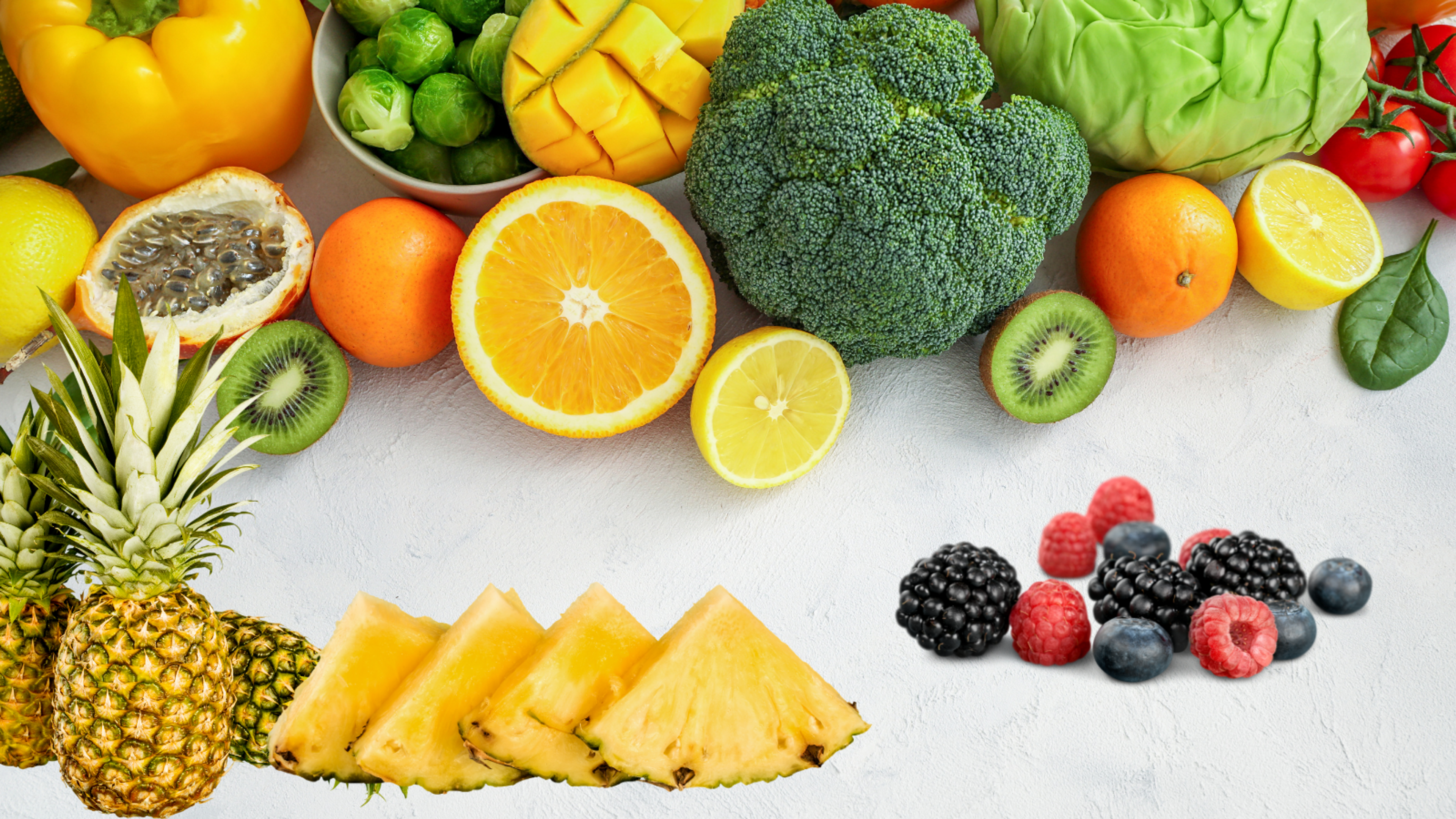
Vitamin C plays a crucial role in collagen production, making it an essential nutrient for maintaining healthy skin and connective tissues. Without sufficient vitamin C, the body's ability to produce collagen may be compromised.
Luckily, there are plenty of plant-based sources of this important nutrient that can easily be incorporated into a vegan diet. Bell peppers, berries, and citrus fruits like oranges, lemons and pineapple are all rich in vitamin C.
Lentils, chickpeas, and chia seeds also provide a good dose of this vital vitamin. For maximum absorption, liposomal Vitamin C is recommended as it allows for better bioavailability in the body.
Vitamin E
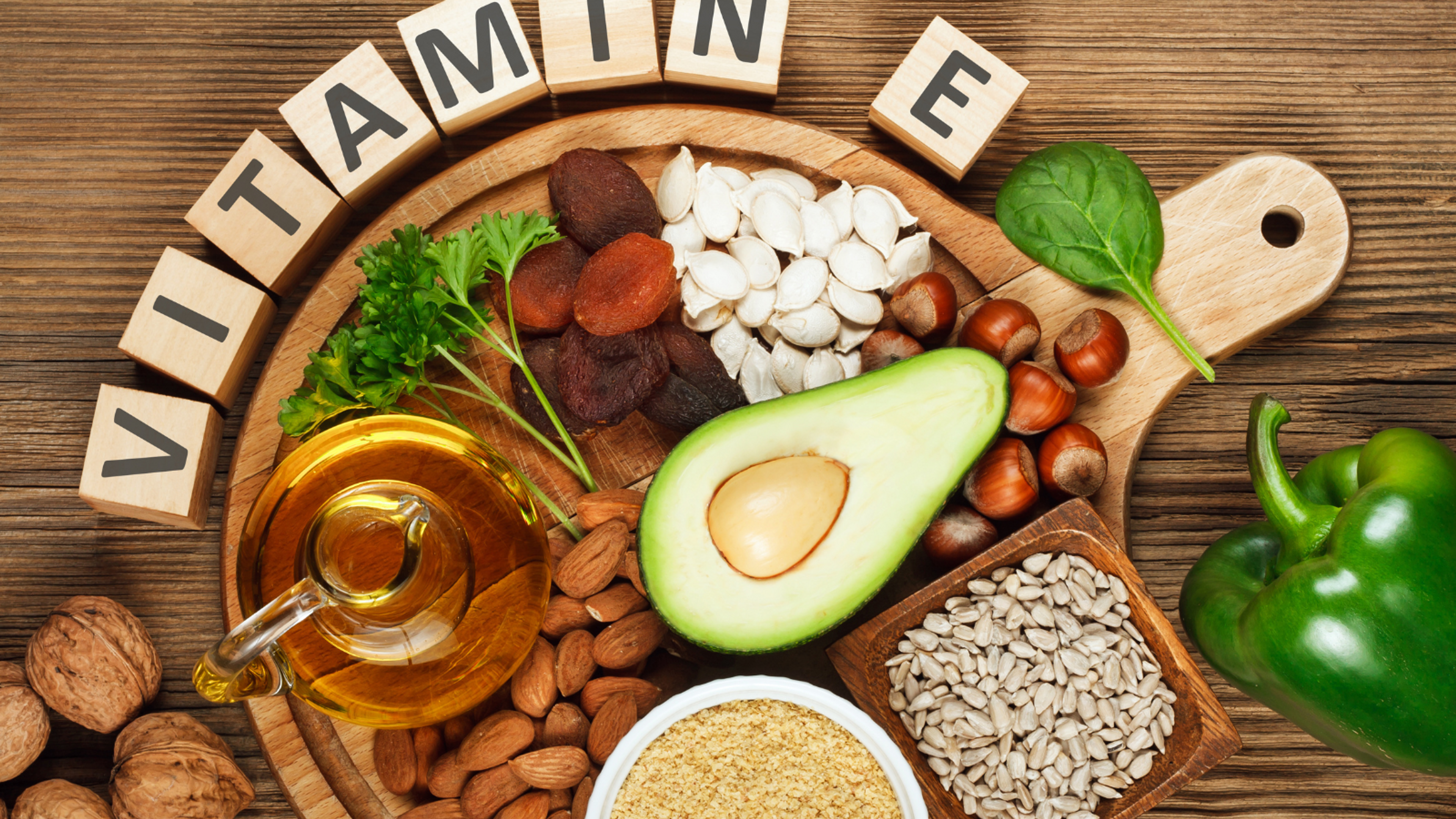
Vitamin E is an important component of vegan collagen sources. This essential nutrient plays a role in boosting collagen synthesis on a vegan diet. It is associated with healthy skin and can help maintain overall skin health by protecting against free radicals that can contribute to premature aging.
Vegan foods rich in vitamin E include almonds, cashews, avocados, and spinach. Incorporating these plant-based sources into your diet can support the production of collagen naturally and promote healthier, more youthful-looking skin.
Incorporating Vegan Collagen into Your Diet
To incorporate vegan collagen into your diet, focus on plant-based food sources rich in amino acids, such as spinach and kale. You can also consider adding vegan collagen powders to smoothies or other recipes for an extra boost.
Remember to follow recommended intake levels and consult with a healthcare professional to ensure you are getting enough collagen without any potential risks.
Incorporating plant-based food sources into your diet can help boost collagen production. Here are some options to consider:
- Dark leafy greens: Spinach, broccoli, kale, and cabbage are rich in antioxidants and vitamin C, which promote collagen synthesis. Manganese, which is an essential nutrient abundantly present in leafy greens, nuts & whole grains increase collagen and elastin production by increasing the enzyme for proline formation, especially when healing wounds.
- Whole grains: Quinoa and brown rice contain amino acids that support collagen production.
- Legumes: Beans, lentils, and chickpeas provide amino acids like proline and glycine that are essential for collagen formation.
- Nuts: Almonds, cashews, and pumpkin seeds are packed with nutrients like zinc and copper that aid in collagen synthesis.
- Vitamin C-rich foods: Citrus fruits, strawberries, kiwi, papaya, and mango all contain high levels of vitamin C, which is crucial for collagen production.
- Silica-rich foods: Incorporating silica-rich foods like asparagus and cucumbers can help improve collagen production.
Vegan collagen powders
Vegan collagen powders are a popular option for those looking to boost collagen production on a vegan diet. These powders are typically made from plant-based ingredients and are free of animal products. They provide an alternative to traditional collagen supplements that are derived from animal sources.
Vegan collagen powders often contain a combination of amino acids, vitamins, and minerals that support collagen synthesis in the body. These powders can easily be incorporated into smoothies, shakes, or other recipes to increase collagen intake.
When choosing a vegan collagen powder, look for one that is labeled as being specifically designed to support collagen production. It's important to follow the recommended intake levels for these powders and consult with a healthcare professional if you have any concerns or underlying health conditions.
By incorporating vegan collagen powders into your diet, you can provide your body with the nutrients it needs to promote healthy collagen synthesis and support overall skin health.
Recommended Intake levels and potential risks
To reap the benefits of vegan collagen, it's important to know the recommended intake levels and be aware of any potential risks. While there is no specific recommended daily intake for vegan collagen, incorporating a variety of plant-based sources into your diet can help support collagen production in the body.
It's advisable to focus on consuming foods rich in amino acids, vitamin C, vitamin E, and silica. However, when it comes to vegan collagen supplements, their effectiveness is still unclear and there may be potential risks associated with these products.
Therefore, it's important to consult with a healthcare professional before adding any supplements to your diet to ensure they are safe and suitable for you.
Benefits of Vegan Collagen
Consuming vegan collagen can offer a multitude of benefits for those following a plant-based diet. Firstly, incorporating vegan collagen into your routine can promote the body's own collagen production, leading to longevity and vibrancy.
This means that your hair, skin, and nails may improve in health and appearance as you provide your body with the essential nutrients it needs for collagen synthesis.
Not only does vegan collagen help with physical aesthetics, but it also has potential anti-aging effects. Studies have shown that consuming hydrolyzed collagen can reduce wrinkles and improve skin hydration.
This is especially important for vegans who may not be getting these benefits from traditional animal protein sources.
Additionally, vegan collagen supplementation supports overall joint health. Collagen plays a crucial role in maintaining healthy connective tissue and cartilage in our bodies. By providing your body with the necessary building blocks through plant-based sources like amino acids and vitamin C-rich foods, you can potentially reduce inflammation and support joint function.
Overall, adding vegan collagen to your diet could benefit not only your appearance but also your overall well-being by supporting healthy skin, joints, and even hair growth. It provides an accessible alternative for those following a plant-based or vegetarian lifestyle who still want to enjoy the benefits typically associated with traditional animal-derived collagens.
Vegan Collagen Myths and Misconceptions
There are several myths and misconceptions surrounding vegan collagen that need to be debunked. One common myth is that vegans are at a higher risk of collagen deficiency compared to non-vegans.
However, this is not true. While many plant-based foods do not contain collagen itself, they can still support the body's natural production of collagen by providing essential amino acids and nutrients necessary for its synthesis.
Another misconception is that consuming animal collagen will directly improve the health and appearance of your skin. In reality, consuming animal collagen does not mean it will automatically be used by your body to make your skin plumper or more youthful.
Collagen needs to be broken down into individual amino acids before being utilized by the body, regardless of its source.
Furthermore, some people believe that vegans absolutely need to supplement with collagen in order to meet their nutritional needs. However, there isn't enough scientific evidence to support this claim.
Plant-based diets can provide all the necessary nutrients required for healthy collagen production without relying on animal sources.
It's important to separate fact from fiction when it comes to vegan collagen so that individuals following a plant-based lifestyle can make informed choices about their nutrition and skincare routines.
Conclusion
In conclusion, while getting sufficient collagen on a vegan diet may be challenging, there are plant-based sources and supplements available to support collagen production. By incorporating specific amino acids, vitamins, and minerals into your diet from sources like fruits, vegetables, nuts, and seeds, you can boost collagen levels naturally.
Remember to consult with a healthcare professional before starting any new supplements or making significant dietary changes. With the right approach and knowledge of vegan collagen sources, you can maintain healthy skin and promote overall well-being on your plant-based journey.
FAQs
1. Can I boost collagen production on a vegan diet?
Yes, you can boost collagen production on a vegan diet by consuming plant-based sources that promote collagen synthesis and support overall skin health.
2. What are some plant-based sources of collagen?
Some plant-based sources of collagen include fruits like citrus, berries, and tropical fruits, vegetables like spinach, kale, and bell peppers, nuts and seeds such as almonds and chia seeds, legumes like chickpeas and lentils, and soy products like tofu and tempeh.
3. Are there any supplements available to enhance collagen production for vegans?
Yes, there are vegan-friendly supplements available that contain ingredients like vitamin C, which is essential for collagen synthesis. These supplements can provide additional support in boosting collagen levels for vegans.
4. Are there any lifestyle factors that can negatively impact collagen production on a vegan diet?
Certain lifestyle factors such as smoking tobacco or excessive sun exposure can negatively impact collagen production regardless of dietary choices. It is important to maintain healthy habits alongside a vegan diet to optimize the benefits of plant-based sources for promoting collagen synthesis.

